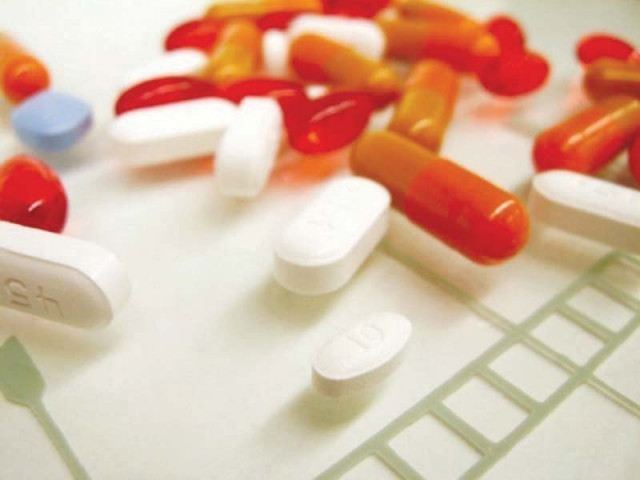Impeding progress: Pharma sector holds DRAP responsible for poor exports
Demands an autonomous development authority, creation of one-window system

The PPMA chairman revealed that at least 70 basic medicines had stopped coming to the market, but the industry could not manufacture these drugs due to delay in renewal of licenses by the regulatory authority. PHOTO: FILE
During a briefing to the Senate Standing Committee on Commerce, headed by Senator Shibli Faraz, Raza said that Drap was creating unnecessary hurdles in the way of smooth functioning of the sector as whenever it required any documents, permission, notifications or no-objection certificate, the authority took months to meet the need.
“The sector cannot compete in the international market without getting rid of bureaucratic hurdles,” he remarked.

He said the sector had a great potential to increase its exports manifold, but the regulatory authority was impeding the smooth functioning of the pharmaceutical industry.
“Pakistan also needs a separate pharmaceutical development authority as the case in India, which has increased its annual exports of pharma goods from $1 billion in 2001 to an estimated $20 billion in 2016,” he said.
Raza said India was the second largest pharmaceutical exporter to the US and Pakistan had the same potential and opportunities to grab the international market. Besides meeting the domestic requirement, which consumes 90% of the country’s production, the pharmaceutical products are exported to many countries.
According to Raza, there is a need for a one-window system for providing relevant government documents to meet the demand at the international level.
He suggested that there must be an autonomous and professional pharmaceutical development authority, which could make the documents available timely to enable the industry to offer its products in the global market.
The PPMA chairman revealed that at least 70 basic medicines had stopped coming to the market, but the industry could not manufacture these drugs due to delay in renewal of licenses by the regulatory authority.
“Most of them are used by poor patients; doctors ultimately prescribe costly medicines as a substitute because cheaper ones are not available,” he said.
Senator Shibli Faraz said it seemed that some government departments were resorting to delaying tactics in addressing the genuine issues of the industry.
“These tactics are often used by the bureaucrats for corruption and malpractices. Such departments are working against the country’s interest and we must fix them urgently,” he said.
Senator Usman Khan Kakar claimed that the health ministry was also involved in manufacturing spurious drugs and it had completely failed to stem the practice.
The pharmaceutical manufacturers pointed out that 80% of the spurious drugs were being manufactured in Khyber-Pakhtunkhwa with Peshawar taking the lead.
They asked the committee head to take stern action in the province to check the problem.
Federal Commerce Minister Khurram Dastgir said there were many incentives for the pharmaceutical sector in the Strategic Trade Policy Framework (STPF) 2015-18 and the sector must avail itself of these incentives for increasing exports and value addition.
Published in The Express Tribune, July 29th, 2016.
Like Business on Facebook, follow @TribuneBiz on Twitter to stay informed and join in the conversation.



















COMMENTS
Comments are moderated and generally will be posted if they are on-topic and not abusive.
For more information, please see our Comments FAQ